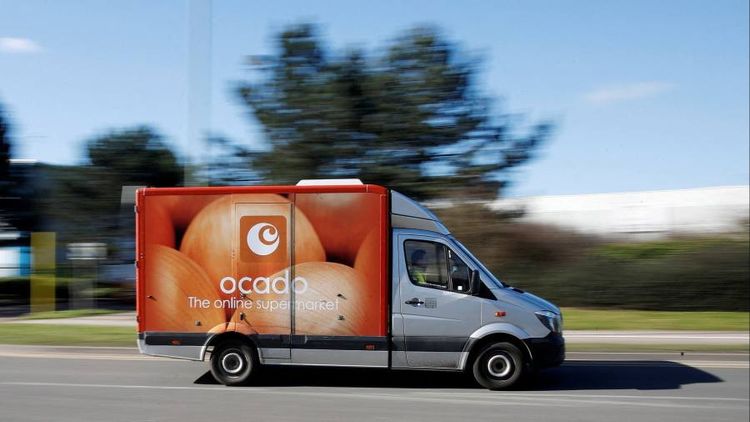Ocado shares surge over Amazon bid speculation

Get free updates on Ocado Group PLC
Every morning, you'll receive a myFT Daily Digest email summarizing the most recent news about Ocado Group PLC.

The stock price of the UK-based e-grocer Ocado skyrocketed by 32% on Thursday based on speculation that Amazon may be considering a buyout offer.
The shares of the company had plummeted after reaching an all-time high during the COVID-19 pandemic-induced surge in online shopping. However, it witnessed a sudden increase in value following reports by The Times that some renowned technology giants like Amazon had shown an interest in acquiring the UK-based company.
During the past couple of years, Ocado hasn't been very popular with investors due to the fast increase of interest rates and inflation in the UK. This has caused problems for the British consumers, resulting in Ocado having to slow down its plans for expansion. The company was created by former Goldman Sachs executives.
During the month of February, the company announced that they had incurred a pre-tax loss of £501mn for the year. This was the largest loss they had faced in the 23 years that they had been in business. Additionally, their joint venture with Marks and Spencer, in which they both invested equally, also experienced a significant decrease in profitability.
Ocado is currently encountering difficulties that have resulted in its shares becoming one of the most heavily borrowed on the London stock market. As per IHS Markit, 15.5% of Ocado's available shares are currently being loaned to other parties.
Ocado's share price had a drastic increase of 47 percent at its highest point, reaching 631p. However, it closed at 566.2p, indicating a 32 percent increase.
The possibility of a bid interest has been reported, but both Ocado and Amazon have chosen not to provide any comments about it.
Amazon has been classified as a significant food retailer in the UK and is subject to regulation. The Competition and Markets Authority recognized it as a grocer, similar to popular supermarkets like Waitrose and Tesco with sales figures over £1bn. This classification means that it must adhere to specific supplier treatment guidelines.
Although their main focus is on selling products through their online store, the company has also expanded into the food industry by opening physical stores. Their CEO, Andy Jassy, expressed in an interview with the Financial Times that they are prepared to heavily invest in brick-and-mortar shops, even though they had shut down some locations and postponed opening new ones in the previous year.
Back in February, Jassy stated that they are still at the initial phase. They hold a positive outlook that by the year 2023, they will have developed the desired format and are ready to expand widely on the physical aspect.
In March 2021, Amazon launched its first Amazon Fresh store with technology that doesn't require cashiers, called the "just walk out" technology. The rollout of these stores was halted in August of last year after opening only 20 locations. Amazon has now opened at least two new stores in the UK that don't rely solely on this automated checkout technology, as well as closing one of its earliest stores in London.
According to the latest quarterly results, even after purchasing Whole Foods for $13.7 billion half a decade ago, Amazon's revenue from physical stores is still less than 4 percent.
Even though there was an increase in share value on Thursday, Ocado's stocks have experienced a significant drop of 80% from when they reached their all-time high in September 2020.
If Amazon were to show an interest in Ocado, it would most likely face intense examination from the UK's competition authority. The CMA conducted a comprehensive inquiry into Amazon's 16% stake in Deliveroo, which was eventually approved in 2020 due to the pandemic's perceived detrimental effect on the food delivery sector.































































